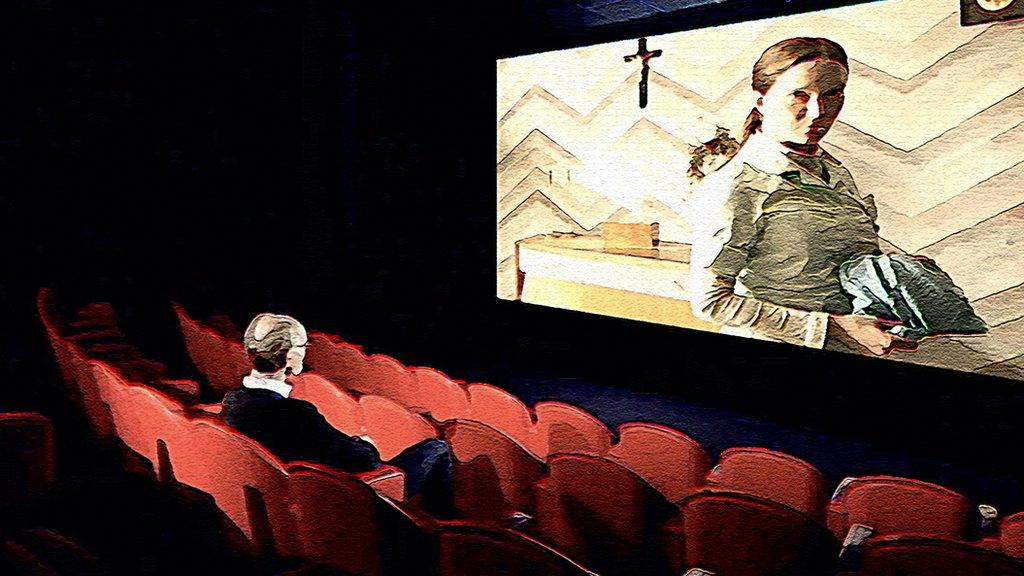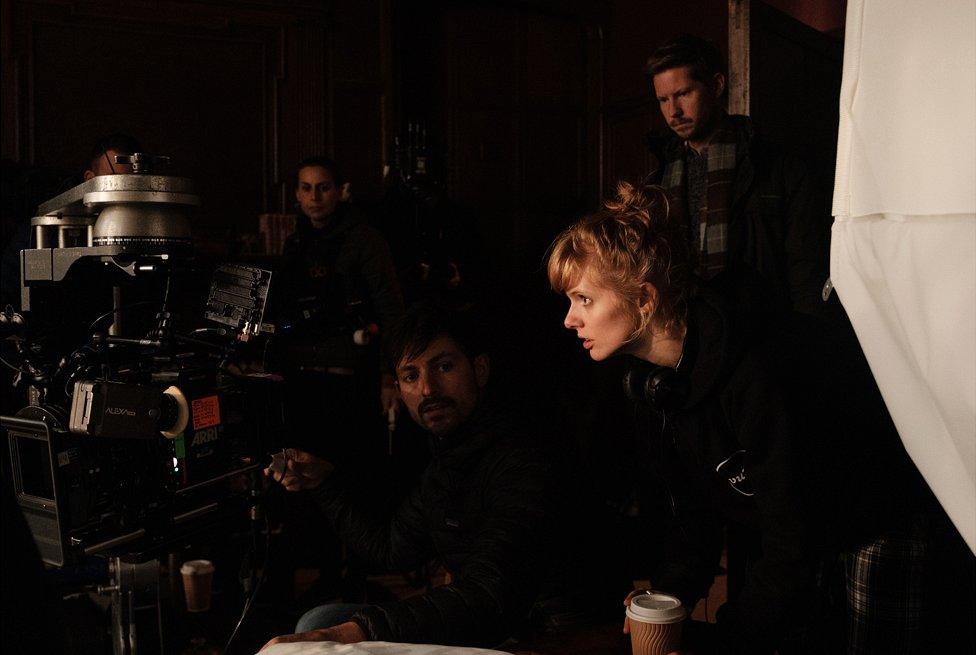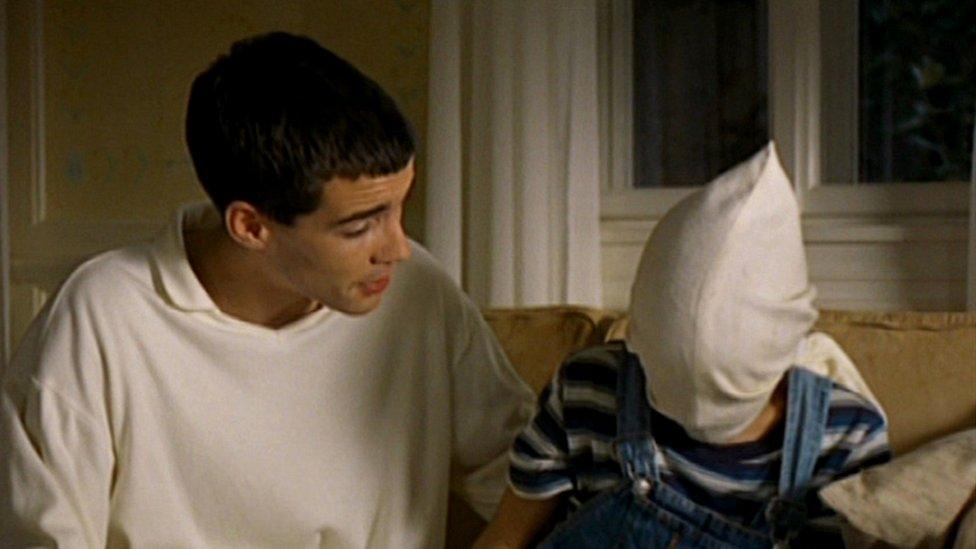Saint Maud: Will Gompertz reviews Rose Glass's debut film ★★★★☆
- Published

It was hoped James Bond would ride to the rescue of the cinema business this autumn, but 007 bottled it and skulked off until the spring. So, the role of cinema's saviour now falls to the rather less famous but equally single-minded Saint Maud.
Maud (Morfydd Clark) is a nurse with saintly ambitions. She doesn't want to simply save lives - anyone can do that - she wants to save a soul. All she needs is a bit of divine guidance to give her a sign that she is on the right path.
She takes a job as the primary carer of a terminally ill ex-ballerina called Amanda (Jennifer Ehle) who doesn't suffer fools, or primary carers, gladly. The haughty patient lives in a gothic mansion at the top of a hill, where she hosts end-of-days parties and is regularly visited by her lesbian lover.

Jennifer Ehle as Amanda, who was a star dancer, but now needs the support of a carer
Maud doesn't approve. Amanda needs saving. Thanks God.
We all know the road to hell is paved with good intentions, but unfortunately Maud missed that memo. And so unfolds a contemporary horror film with a familiar story - a tale of a psychologically damaged nurse - but told in a wholly original way.
Morfydd Clark is a revelation in her first lead role.
The Welsh actress brings a nerveless naturalism to the part: she doesn't so much play Maud as inhabit her. So much so, the piece goes beyond being a psychological drama, and develops into a character study of a troubled, but basically kind young woman, struggling with her mental health.
Clark had the benefit of working with a very talented accomplice, the first-time filmmaker Rose Glass, who wrote and directed the film. The 31-year-old had spent the last five years seeing her idea to fruition, during which time she took many of the jobs open to aspiring artists such as waiting tables and working as a receptionist.

Maud is tormented by a terrible secret from her past and by messages she believes are from God


Writer and first-time director Rose Glass on the set of Saint Maud
It is an incredible achievement to get a movie made at all, to make one as good as Saint Maud as your first effort is remarkable.
There is something of Michael Haneke's Funny Games about it, in the way a dreadful, foreboding suspense lurks in every nook and cranny of the film without necessarily coming to resolution and therefore relief.

(L-R) Arno Frisch as Paul and Stefan Clapczynski as Georg Junior in Michael Haneke's original 1997 movie, Funny Games
The tension only increases as Maud pulls out a two-inch needle or slowly pulls a scab off a wound. There is though, the occasional let up.
Thankfully Glass has a sense of humour, which she merrily shares with us as Maud goes about her business. Jokes about phallus sizes and Amanda's character are dropped in to lighten the mood between Maud's over-the-top orgasmic reactions to sensing a holy presence and shooting her patient disapproving looks. Talk about giving someone the evil eye.
We know Maud has secrets, and a past that haunts her.
But, as with much in this largely well-paced film, nothing is divulged in a rush. What happened only becomes apparent as we get to know her; we have to put two-and-two together, as tiny details of her story come to light.

Maud is determined to endure pain for her beliefs
It is in many respects a restrained film, from its sombre colour palette to Maud's introverted personality. At times it is a little too throttled back, and comes close to letting the meticulously developed sense of suspense peter out. But when it does break out into moments of action they are delivered with startling intensity accentuated by excellent editing and grisly close-ups.
There's a sex scene which could put you off fornication for life.
If horror and needles are not your thing, you are probably best advised to give the film a miss.
But, if you're up for a bit of pre-Halloween creepiness, and you want to do your local cinema a big favour, I highly recommend 84 minutes spent with the obsessive Saint Maud.
Recent reviews by Will Gompertz:
Follow Will Gompertz on Twitter, external
